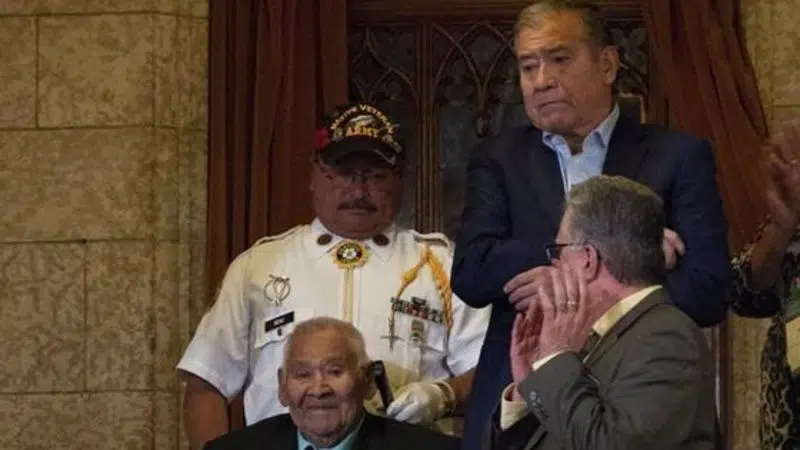
Louis Levi Oakes, last of Mohawk code talkers, passes away at 94
AKWESASNE, Que. — A funeral will be held Saturday for the last of the Mohawk code talkers from the Second World War, Louis Levi Oakes, who died peacefully on Tuesday surrounded by family at age 94.
Oakes was the last surviving member of a group that used the Mohawk language to help relay encrypted secure messages to Allied forces during the Second World War — one of 33 native languages used by U.S. troops to share vital information.
“Levi was one of Akwesasne’s most respected elders and the remaining survivor of the World War II Mohawk Code Talkers,” the Akwesasne Mohawk Council wrote in a statement posted to Facebook. “While stationed in Louisiana, Levi and other Indigenous soldiers received training as code talkers using their traditional first languages.”

